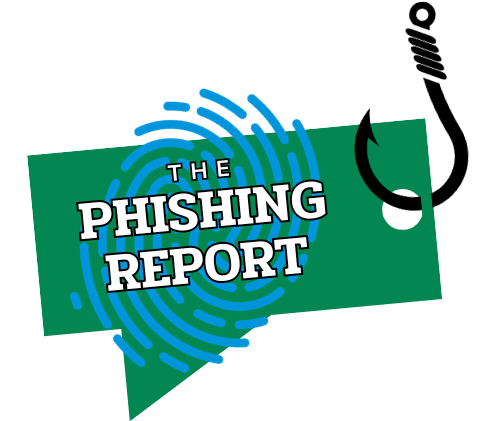When considering network security risk assessment providers, you’ll want to guarantee a thorough evaluation process to safeguard your organization’s sensitive data and systems. The reliability and accuracy of these assessments are crucial in today’s digital landscape, making the selection of a reputable provider a critical decision. As you navigate through the complexities of evaluating different providers, one key aspect often overlooked is the methodology behind the risk assessment process itself. Understanding how providers approach risk analysis can greatly impact the outcomes and effectiveness of your security measures.
Key Takeaways
- Consider provider certifications like CISSP for expertise validation.
- Review client testimonials and case studies for proof of capabilities.
- Assess cost against service quality for a balanced evaluation.
- Evaluate industry experience and practical knowledge for proficiency.
- Analyze Service Level Agreements (SLAs) to ensure they meet organizational needs.
Key Factors to Consider
When evaluating network security risk assessment providers, it’s essential to carefully consider key factors that can impact the effectiveness of their services.
Risk analysis plays an important role in understanding the threats and vulnerabilities that could compromise your network security. A reputable provider should conduct a thorough risk analysis that identifies potential security risks specific to your organization’s infrastructure and operations.
This analysis should encompass not only current risks but also anticipate future threats that may arise as your network evolves.
Security vulnerabilities are another critical aspect to assess when choosing a network security risk assessment provider. The provider should have a deep understanding of common vulnerabilities that malicious actors exploit, such as outdated software, misconfigured systems, or weak authentication mechanisms.
By identifying and addressing these vulnerabilities proactively, the provider can help fortify your network defenses and reduce the likelihood of successful cyber attacks.
When selecting a provider, inquire about their approach to risk analysis and how they prioritize addressing security vulnerabilities. A transparent and methodical process that aligns with industry best practices is indicative of a reliable provider.
Additionally, consider the provider’s track record in helping organizations mitigate security risks and strengthen their overall security posture. By focusing on risk analysis and security vulnerabilities, you can make an informed decision that enhances your network security resilience.
Types of Assessments Offered
- Vulnerability Scanning: Network security risk assessment providers conduct vulnerability scanning to identify weaknesses in your system that could be exploited by attackers. This automated process helps in pinpointing vulnerabilities that need to be addressed promptly.
- Penetration Testing: Through penetration testing, providers simulate real-world cyber attacks to assess the effectiveness of your security measures. This proactive approach helps in identifying potential security gaps before malicious actors exploit them.
- Compliance Audits: Providers offer compliance audits to make sure that your organization adheres to industry-specific regulations and standards. These audits help in meeting legal requirements and maintaining a secure operational environment.
- Security Audits: Security audits involve a thorough review of your organization’s security policies, procedures, and controls. By conducting security audits, providers can assess the overall security posture and recommend improvements to mitigate risks effectively.
Understanding the types of assessments offered by network security risk assessment providers is critical for enhancing your organization’s security resilience and staying ahead of potential threats. By leveraging a combination of vulnerability scanning, penetration testing, compliance audits, and security audits, you can proactively strengthen your security defenses and safeguard sensitive information from cyber threats.
Industry Experience and Certifications
Network security risk assessment providers demonstrate their expertise through industry experience and certifications, showcasing their proficiency in evaluating and enhancing organizational security measures. The importance of certifications can’t be overstated in the field of network security risk assessments.
Certifications such as Certified Information Systems Security Professional (CISSP), Certified Information Security Manager (CISM), and Offensive Security Certified Professional (OSCP) indicate that a provider has met stringent industry standards, possesses a deep understanding of security principles, and has the necessary skills to conduct thorough assessments.
Practical experience is equally vital when evaluating network security risk assessment providers. Providers with a track record of successfully conducting assessments across different industries and organizational sizes are more likely to deliver thorough and effective results.
Look for providers who’ve experience in dealing with a variety of network architectures, security technologies, and compliance requirements. This practical experience allows them to tailor their assessments to the specific needs and challenges of your organization, ensuring a more targeted and impactful evaluation of your security posture.
Client Testimonials and Case Studies
Exploring client testimonials and case studies provides valuable insight into the practical application and effectiveness of network security risk assessment providers. Success stories showcase real-world scenarios where providers have demonstrated their capabilities effectively. Customer feedback, on the other hand, offers a glimpse into the overall satisfaction levels and specific strengths of the providers as experienced by their clients.
- Validation of Expertise: Testimonials often highlight the expertise and professionalism of the provider, giving you confidence in their abilities.
- Identification of Key Benefits: Case studies can reveal the key benefits clients have experienced, allowing you to assess if those align with your needs.
- Problem-Solving Abilities: Success stories can illustrate how providers tackle complex security issues, demonstrating their problem-solving skills.
- Service Quality: Customer feedback can shed light on the quality of service, response times, and overall customer experience, aiding you in making an informed decision.
Cost and Service Level Agreements
When evaluating network security risk assessment providers, it’s important to explore their cost structures and service level agreements to guarantee alignment with your organization’s needs and expectations.
Cost comparison plays a significant role in selecting the right provider. Conduct a thorough analysis of the pricing models offered by different providers. Consider whether the costs are one-time, recurring, or based on the scope of services provided. Compare these costs against the value and quality of services to make sure you’re getting the best return on investment.
Service Level Agreements (SLAs) are essential in defining the level of service you can expect from the provider. Review the SLA expectations carefully, paying close attention to factors such as response times, resolution times for issues, and availability of support. Ensure that the SLAs outlined by the provider meet your organization’s requirements for network security risk assessment.
Additionally, evaluate the flexibility of the SLAs in accommodating any changes or special requirements your organization may have. Clear communication and agreement on SLAs are crucial to maintaining a successful partnership with the network security risk assessment provider.
Frequently Asked Questions
Can You Provide Real-Time Monitoring and Alerts for Potential Security Threats?
Yes, you can definitely benefit from real-time monitoring and threat alerts to enhance your network security. These features allow you to stay proactive by detecting potential threats as they occur and providing immediate alerts for prompt action.
How Often Do You Update Your Assessment Methodologies to Stay Ahead of Evolving Threats?
You regularly update assessment methodologies to guarantee continuous improvement and stay ahead of evolving threats.
By integrating the latest threat intelligence data, your approach remains proactive and adaptive.
This dedication enables you to provide clients with cutting-edge security assessments that address emerging risks effectively.
Your commitment to staying current with industry trends and advancements in cybersecurity helps maintain the high quality and relevance of your services.
Do You Offer Customized Solutions Based on the Unique Needs of Our Organization?
Like a skilled tailor crafting a bespoke suit, our services are tailored to meet your organization’s unique needs. We offer customized solutions that align with your specific requirements, ensuring a precise fit for your security posture.
What Measures Do You Have in Place to Ensure the Confidentiality of Our Data?
To safeguard the confidentiality of your data, we implement robust data encryption protocols. This means that your information is encoded to prevent unauthorized access.
Additionally, we’ve secure access controls in place, which restrict who can view or modify the data.
Can You Assist With Compliance Regulations Specific to Our Industry?
Yes, our team can assist with compliance regulations specific to your industry. We provide tailored solutions to guarantee that your organization meets all industry-specific regulations.
Our expertise includes offering guidance on data confidentiality assurances and implementing measures to ensure compliance with relevant standards.
You can rely on us to navigate the intricacies of industry-specific regulations and provide the necessary support for your organization’s compliance needs.
Final Thoughts
As you evaluate network security risk assessment providers, remember to dig deeper into their experience, certifications, and track record.
Investigating the truth behind their success stories and client testimonials will give you a clearer picture of their capabilities.
Don’t overlook the importance of cost structures and Service Level Agreements in ensuring a successful partnership.
By taking a thorough and analytical approach to your evaluation process, you can make an informed decision that aligns with your organization’s needs for effective risk analysis.

